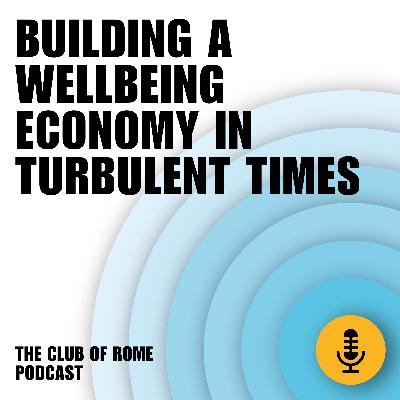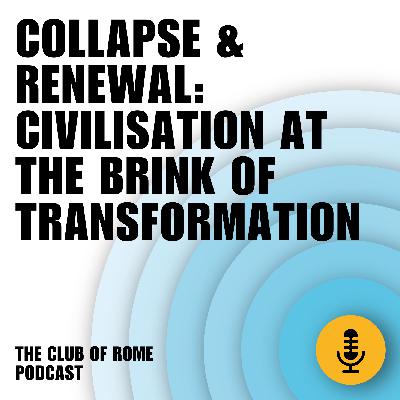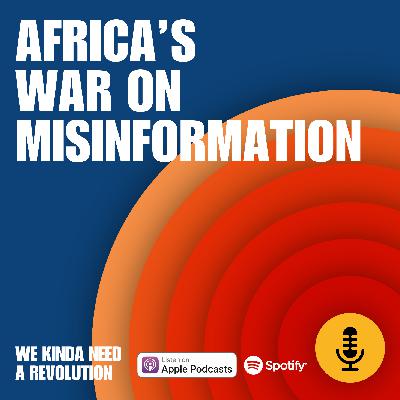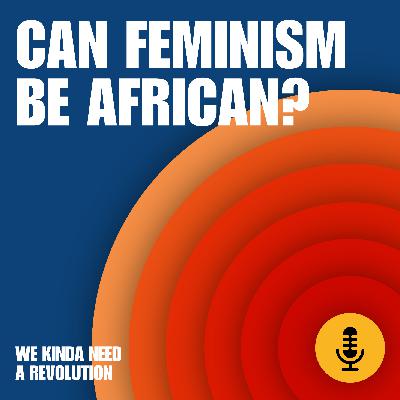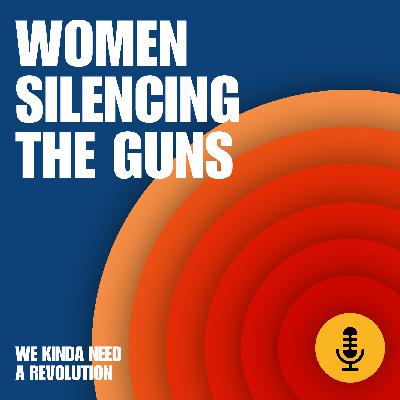Building a wellbeing economy in turbulent times with Katherine Trebeck and Till Kellerhoff
Description
Why does the vision of a wellbeing economy remain both urgently needed and frustratingly out of reach?
In this episode of The Club of Rome Podcast, Till Kellerhoff speaks with political economist and Wellbeing Economy Alliance co-founder Katherine Trebeck to unpack this dilemma. As overlapping global crises continue to shake confidence in our current economic model, they discuss the promise and paradoxes of wellbeing economics: its appeal, its challenges and its limitations.
Together, they dig into what’s stalling real systemic change, why hopeful visions struggle against the tide of rising authoritarianism and pessimism, and how ideology shapes our economic futures. Their conversation highlights the need for plurality and the need to move beyond dashboards toward courageous, structural reform.
Full transcript:
Till: People are losing trust in our current system, and we are faced not only with environmental degradation, but also the destruction of our social fabric. Many of the challenges we see today are actually symptoms of a crisis of our economic system. An alternative to that is the Wellbeing Economy, something I will talk about in today's Club of Rome podcast, where we explore bold ideas for shaping sustainable futures.
I am Till Kellerhoff, Programme Director at The Club of Rome, and in this episode, I'm delighted to be joined by political economist, writer and advocate for economic system change, Katherine Trebek. Katherine co-founded the Wellbeing Economy Alliance and is a member of The Club of Rome. During the episode, we get into the concepts of wellbeing economy, the challenges of implementation in this crazy world, why this movement doesn't benefit more from the existing pain of the people and current crisis and why there's still hope.
Katherine, it's a real pleasure to speak to you today. How are you doing?
Katherine: I'm well, yeah, fantastic to be with you, and I'm buzzing at the moment, because yesterday, I was hanging out with incredible community group who are doing amazing work up in Sydney. We're coming up with some cool cornerstone indicators for the success of their locality. So I'm filled with hope at the moment.
Till: Oh, that's amazing. And we will both speak about communities indicators and hope later in this episode. And we want to talk about Wellbeing Economics today, what it is, but also what the challenges and hopes are in the implementation. Before we dig deeper into that, if you had 30 seconds to explain wellbeing economics to someone who isn't very familiar with the term, how would you do that? And what does it have to do with a picnic blanket?
Katherine: Ah, okay, so I'm not going to tell you about wellbeing economics. I'm going to talk about the wellbeing economy agenda. Wellbeing economics, I think of as more about the curricula and the sort of the study of wellbeing, but the wellbeing economy agenda is much more like a program for change that is essentially about transforming our economic systems, how we produce, consume, who's winning, who's losing, how we treat the environment, how we treat each other, the nature of businesses, transforming all of that. So it's very deliberately in service of people and planet.
Till: Excellent.
Katherine: You want to hear about a picnic blanket?
Till: Absolutely
Katherine: That's my, my way of describing how the wellbeing economy agenda is not some new on its own concept that's here to sort of shove out of the way all the existing amazing schools of thought and ideas and visions for economic system change. There are loads of concepts out there, loads of ways of describing an economy that is much better for people and planet. And lots of folk who have heard of many of these, from donut economics, regenerative economics, solidarity economics, feminist economics, future generations thinking, post growth economics and so on and so on and so on.
I think of the wellbeing economy as not so much coming along saying, Here I am in addition to this, pick me over the others, but more sitting on a sort of different level and saying it's a bit like a picnic blanket, that's making all of them feel welcome, but really showcasing that, yes, they'll have their slightly different emphasis and different terminology and thus resonate with different audiences. And that's, I think, okay, but at their core, they really share this idea of an economy that is in service of people and planet, rather than the other way around.
Till: Excellent. And you said in a TED Talk five years ago that some people call wellbeing economics a utopian vision. But since when is this a bad thing? And I would agree with that, you know, I think we need utopia. We need also vision, but that was five years ago. Has this hope and this vision and this utopia changed in the last years for you?
Katherine: Do you know Till, I think, five years ago, almost, in retrospect, feels like halcyon days. And of course, the challenges were enormous then, but this is pre COVID, since that that talk, which was, I think 2019, we've seen more and more destruction of our planet. We're seeing almost daily records being being broken in terms of extreme heat and flooding and so on. And I'm here in Australia, and we feel that particularly acutely, and just people's level of despair and loneliness and frustration with the system seems to have been accelerated even since those days, which were challenging enough. And so I think the need to have hope in a better way of doing the economy.
The need to point out that our economy can be redesigned so it's much better for people and planet, that need has even become more critical. It certainly hasn't gone away. Has the hope for change abated? Well, I think it'd be almost naive to say we're not in a very challenging situation. I think though the recognition that business as usual can't carry on, feels to be more broadly understood, and we're seeing folks almost reaching for almost what I describe as coping mechanisms, because they're so frustrated with the status quo. They're doing that at the metaphorical pillbox in through, you know, self-medication or turning to retail therapy, for example, or their Twitter bubbles or x bubbles, or they're turning for coping mechanisms at the ballot box as well. And we're seeing that with the rise of sort of quite extreme politics around around the world, though not here in Australia, as we've just seen in the last few weeks. But yeah, it is interesting.
I think what's inevitable is change is happening. I think the question is how deliberate communities and societies can be about shaping that change so that it's just and something better emerges beyond.
Till: I would very much agree with that change is happening, but the key question is, why, despite the crisis, despite the factors you mentioned, despite the climate catastrophe, but also related social impacts, and we see rising levels of burnouts and depressions.
And one could say there are not only environmental tipping points, but also social tipping points in a way that destabilise societies. And all of that is there and all of that we see, but still, one doesn't have the feeling, if you look into the news today, that the implementation of the wellbeing economy is much farther advanced now than was five years ago. And the question really is, why is that? Because you point out that crises are very often moments of paradigm shifts, right?
Katherine: Yeah, I think you're right. I don't think it was a lack of ideas lying around that, say, for example, after the global financial crisis, we didn't see a whole scale shift to a different way of configuring and sort of having a different logic behind the economic system to the one that we have today. In a sense, we've just doubled down on the current approach. And so I think part of the challenge is that the ideas are not yet making it from the movement, if I can use that broadly understood idea of the economic change movement, they're not making it from the movement's quarters and desks and discussions and conferences and gatherings into policy making sufficiently. They're not making it into many universities sufficiently. They're not, definitely not making into education curricula, and they're not, perhaps most critically, making it into the everyday conversations of everyday people.
I don't think the movement is short of ideas. I don't think the movement is short of policy examples, and there's definitely no shortage of evidence of the why for change, and I think that's great, and that's all critical and important, but it clearly has not been enough. And so I think that almost we need the next wave of work to be done by the movement is to broaden the base, take these conversations into quarters that are that are not hearing them, that are not excited by these ideas, do not feel that their lives will be positively improved by implementation of these ideas, and, perhaps most importantly, also help people work with people in a compassionate way, so that they feel they're owning the change, and that they're at the forefront of the change. So it's not just being imposed on them by admittedly really well-intentioned movement, but it's something that's and it's a cliche word to use, but really co-created with communities around the world, and then use that momentum to shift the pressure on various policymakers.
And when I say policymakers, I also mean decision-makers inside businesses and enterprises as well, not just governments. I don't think either we should be naive about the counter pushback to some of this work, and if I could just even share the small example of Scotland, where I used to live, the movement there this sort of civil society group and colleagues that I worked with,

